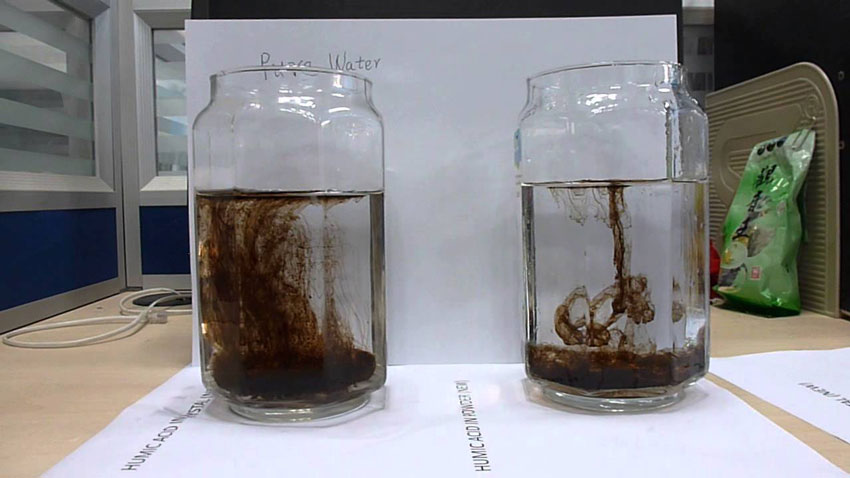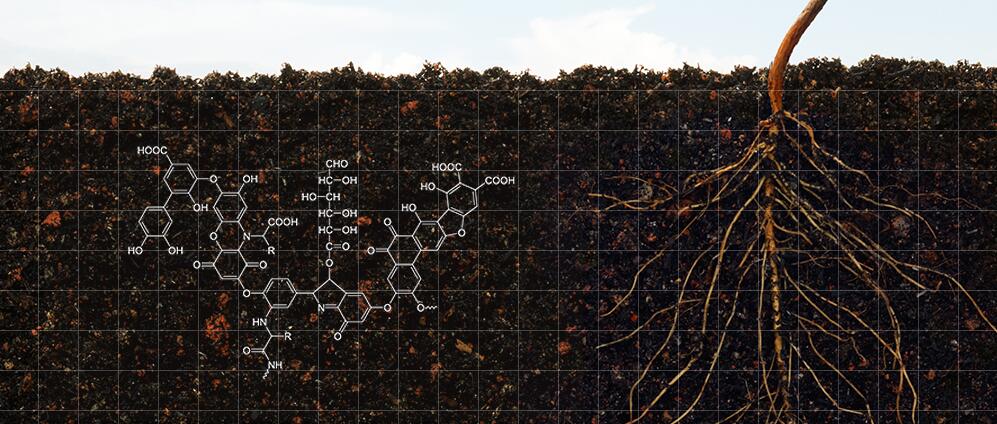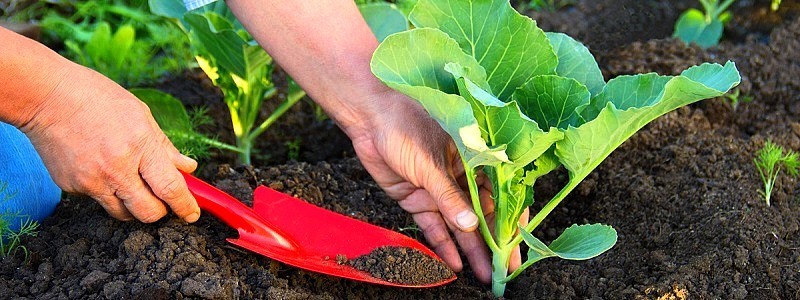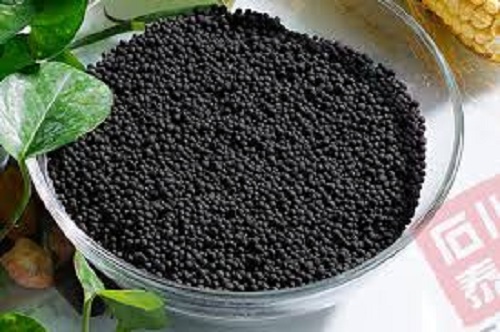 Humic acid fertilizers refers to be extracted from peat, lignite, leonardite by different production methods . Humic acid fertilizers varieties have ammonium humic acid, nitro humic acid, sodium humate, potassium humate flakes, fulvic acid fertilizer, and humic acid mixed with nitrogen, phosphorus or other elements of fertilizer products.The application method and benefits of humic acid for plants are as following.
Humic acid fertilizers refers to be extracted from peat, lignite, leonardite by different production methods . Humic acid fertilizers varieties have ammonium humic acid, nitro humic acid, sodium humate, potassium humate flakes, fulvic acid fertilizer, and humic acid mixed with nitrogen, phosphorus or other elements of fertilizer products.The application method and benefits of humic acid for plants are as following.
Humic acid fertilizers application
1.Humic Acid Fertilizers Soil irrigation

When watering or irrigating the soil, mix potassium humate flakes or powder with the irrigated water, mineral fulvic acid fertilizer is better. So that the roots have full access to the fertilizer and transport chemical nutrients to the plant’s tissues by roots breathing.
2. Foliar fertilization
Water soluble humic acid fertilizers is diluted and dissolved in water first for foliar spraying. We can chose potassium humate or mineral source fulvic acid in flakes or powder form. Or combined with non-alkaline pesticides (most commonly used pesticides are non-alkaline) for foliar spraying.
And water-soluble fertilizer enters into the plant through leaf stoma. For some young plants or crops with poor root systems, it is the best choice to correct the deficiency symptoms. Which greatly improves the efficiency of fertilizer absorption and utilization. And saves the transport process of plant nutrients in plants.
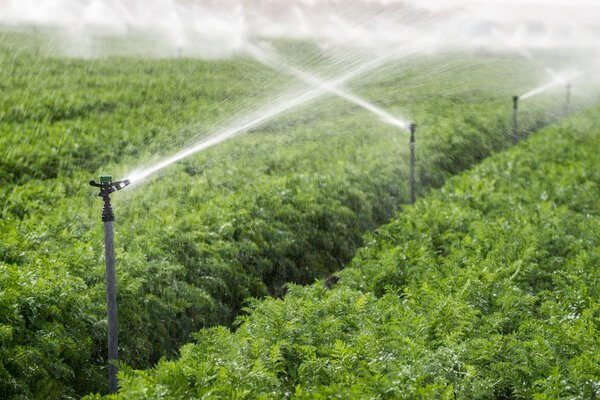
3. Drip irrigation, spray irrigation and soil-less cultivation
In some desert areas or places with extreme water shortage, large-scale farms and high quality and value-added economic crop plantations. People often use drip irrigation, sprinkling irrigation and soil-less cultivation techniques to save irrigation water and improve labor efficiency. This is called “water and fertilizer integration”.
In which the humic acid fertilizers is dissolved in the water during irrigation,We can chose potassium humate or mineral source fulvic acid in flakes or powder form. Which is also the process of fertilization. At this time, the nutrients needed by plants can be obtained through water-soluble fertilizers. Which can save water, fertilizer and labor.The biggest advantage of water – soluble fertilizer – saving water, saving fertilizer, saving labor.
Humic acid fertilizers study history

It has been 214 years since humic acid was first extracted from soil in 1786. If we take “wujinsan” written in the works of “Ben Cao Gang Mu” (Compendium of materia medica) by Li Shizhen as an example, humic acid has been used for more than 400 years. Which fully illustrates the ancient history of humic acid cultivation.
The systematic study of humic acid planting in China began in the late 1950s, mainly from peat utilization. In the 1960s, the use of humic acid fertilizer and soil improvement of the upsurge, a great momentum. Really Paying attention and promotion by the state is after the mid of 1970s.
At that time, vice premier wang zhen of the state council also personally grasped that the state council issued No. 110 and No. 200 documents in 1974 and 1979. Which comprehensively promoted the comprehensive development and utilization of humic acid in China.
In the 1980s, with the continuous development of the national humic acid industry, the state economic and trade commission approved the establishment of “China humic acid industry association” in 1987. Responsible for the unified organization and coordination of humic acid work throughout the country. Some provinces and cities with large storage of humic acid resources have also been incorporated into the work sequence of the government.
Effects on agricultural production
1. Soil improvement

The humic acid organic colloid in the humus fertilizer forms a colloidal substance in the soil. Which can cement up the soil particles. Increase the water-stable aggregates in the soil. Coordinate the water, fertilizer, air and heat conditions of the soil. And have a good effect on the improvement of the poor soil, such as over-sand and over-viscosity. So as to improve the ecological environment of crops.
Humic acid contains many active genes in the improved salt-alkali soil and has a large salt-base exchange capacity. Which can make the soluble salt in the soil absorb and retain a large amount of harmful cations. Reduce the salt concentration in the soil and reduce the ph of salt-alkali soil. So as to improve the ecological environment of crops.
2. Improve the fertilizer effectiveness
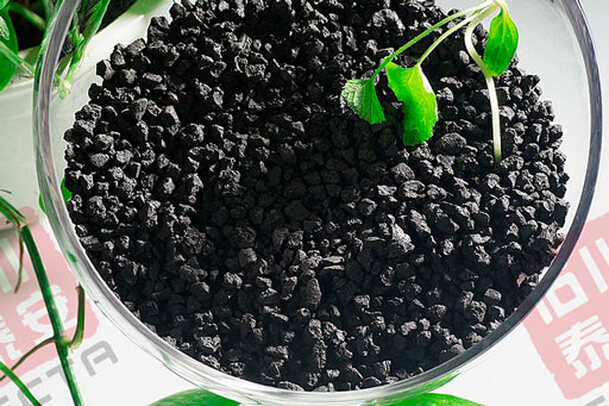 Since humic acid can adsorb and exchange many mineral elements in the soil, such as phosphorus, potassium, calcium, magnesium, etc.. The availability of these elements is greatly increased.
Since humic acid can adsorb and exchange many mineral elements in the soil, such as phosphorus, potassium, calcium, magnesium, etc.. The availability of these elements is greatly increased.
Thus improving the nutritional conditions of crops. It plays the role of synergist in chemical fertilizer and can reduce the adverse effects of chemical fertilizer on soil physical and chemical properties.The effect of increasing nitrogen fertilizer efficiency is shown in the following aspects,
Reduce the loss of nitrogen volatilization. Increase the effect of urea is very significant. Which can prolong the fertilizer efficiency of urea.
Promote the absorption of nitrogen and improve the efficiency of nitrogen fertilizer.The mineralization rate of organic nitrogen in soil was accelerated, and the content of available nitrogen in soil was increased.The synergistic effect of phosphate fertilizer is shown in the following aspects: reducing the fixation of available phosphorus in soil, and playing the role of phosphorus Decomposing . The insoluble phosphorus in soil can be converted into available phosphorus and the absorption of phosphorus by crops can be promoted.
Improve the effective utilization rate of phosphorus fertilizer, promote the conversion of organic and inorganic phosphorus in soil, increase the movement distance of phosphorus in soil, and stimulate the development of crop roots.
The synergistic effect of potassium humic acid fertilizer is shown in the following aspects, reduce the absorption and fixation of potassium in soil and improve the utilization rate of available potassium.Promoting the release of insoluble potassium and increasing the amount of available potassium can alleviate the adverse effects of potassium fertilizer on soil and crops and improve the quality of crops. Fulvic acid fertilizer also has obvious synergistic effect on trace elements.
3. Benefits Of Humic Acid For Plants

Humic acid contains a variety of functional groups, as physiological active substances, to stimulate the growth and development of crops and physiological metabolism, inorganic fertilizers do not have this characteristic. Fulvic acid, a low molecular component of humic acid, is water-soluble. It not only stimulates various crops by seed mixing, root dipping and spraying, but also stimulates them by being absorbed by roots.
Promote seed germination, improve the emergence rate and seedling rate.It has a special promoting effect on the development of crop root system, which promotes the seedling to grow roots quickly and take more secondary roots., increase the ability of crops to absorb water and nutrients.
Fulvic acid stimulation on the above ground parts of crops showed vigorous growth, plant height, strong stem, especially in the early stage. Fulvic acid is absorbed by plant roots and stimulates the physiological metabolism of plant cells, which is manifested in the increase of respiration intensity and photosynthesis intensity.The application of fulvic acid on the leaves of crops reduced stomatal opening, decreased transpiration and increased enzyme activity in the roots.
4.Disease resistant function

The high content of soil organic matter provides an excellent environment for beneficial microorganisms, and the beneficial population gradually develops to have the dominant population, which inhibits the growth of harmful bacteria. In addition, the plants themselves grow healthily due to the good soil conditions, and their disease resistance is enhanced, thus greatly reducing diseases, especially the occurrence of soil-borne diseases.
5. Enhance the stress resistance of crops
The soil, moisture, nutrients, temperature, light, air and other factors in the growing environment of crops constitute the growth conditions of plants.It can increase drought resistance and water conservation by 30 percent.The effect of water conservation and moisture conservation is second only to that produced by mulching. Among these products, potassium humate or fulvic acid in flakes or powder form has higher capacity to hold water.
To enhance the ability of crops to withstand cold, using fulvic acid compound fertilizer or fulvic acid leaf spraying can improve the resistance of crops over winter. Humic acid has a unique effect on the prevention and control of diseases and insect pests. Combined with pesticides, humic acid can inhibit bacteria and resist diseases.
6. Improve crop quality
The effect of fulvic acid fertilizer on improving crop quality will be far-reaching.In vegetables, fruits, can increase the sugar content, vitamin C content, reduce the acidity of the fruit.Leaf quality can be improved in broadleaf crops such as leaf tobacco and vegetable.In the food crops, promote the crops to contain more low molecular organic nutrients.
Humic acid fertilizers effects on the environment

1. Bioremediation
Through the humus process, in which plant residues and organic wastes form humic acid through microbial action, heavy metals and toxic chemicals are fixed or decomposed to play a role in purifying the ecological environment.Studies show that high temperature composting of agricultural waste can remove 50~100% pesticides, 20~90% polycyclic aromatic hydrocarbons (PAHs), and significantly reduce the toxicity of heavy metals.This bioremediation process not only removes some environmental toxins, but also turns waste into treasure, becoming an important supplementary source of soil humic acid.
2. Improve environment
The humic acid existing in the soil itself has a natural purification ability for various toxic substances, but the ecological destruction in recent decades has led to the reduction of soil HA and the reduction of natural purification ability.Artificial supplementation of coal humic acid (final products are potassium or sodium humate, as well as fulvic acid in flakes or powder form. ) can significantly reduce the content of heavy metals, petroleum and its products, PAHs, residual pesticides and other environmental poisons in the soil, which has been confirmed by a large number of domestic and foreign studies
3. Plant Protection and Food Safety
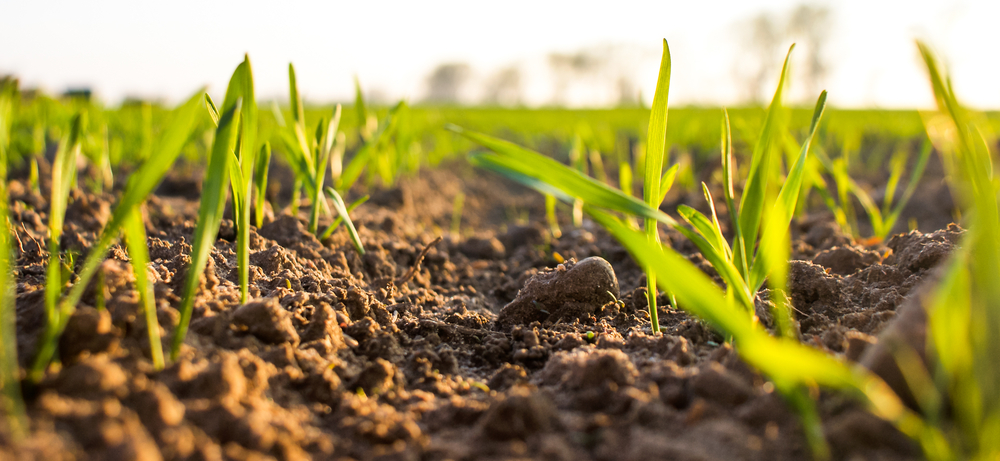 The research shows that the application of humic acid fertilizers in agricultural products can not only reduce the pests and diseases, increase the yield, but also significantly improve the quality; increase nutrients including protein, amino acid, vitamin, sugar and other nutrients; reduce heavy metal, pesticide residues, nitrite and other content. Humic acid ecological environment purification effect, can spread to the entire food chain.
The research shows that the application of humic acid fertilizers in agricultural products can not only reduce the pests and diseases, increase the yield, but also significantly improve the quality; increase nutrients including protein, amino acid, vitamin, sugar and other nutrients; reduce heavy metal, pesticide residues, nitrite and other content. Humic acid ecological environment purification effect, can spread to the entire food chain.
To sum up, humic acid, while very unobtrusive, has been quietly contributing to the carbon balance of the earth and the human environment.Our responsibilities,
1) Actively protect forests, grasslands, and arable land — essentially, to protect the ha-based carbon sink from undeserved disasters and abuses.
2) We will vigorously develop green and low-carbon humic acid industries, which is fully in line with President hu jintao’s commitments at the world climate change summit last year to increase carbon sinks, conserve energy and reduce emissions, develop a circular economy and low-carbon economy, and develop and promote climate-friendly technologies.Over the past 30 years, China’s humic acid industry has made great progress and become a component of China’s low-carbon industry.
Dozens of HA products and technologies, including humic fulvic acid compound fertilizers, foliar fertilizer, growth promoter, soil and water quality improver, have been widely used, making a certain contribution to China’s ecological construction.Recently, China humic acid industry association has issued the “green and low-carbon declaration” on behalf of China’s humic acid industry, determined to adapt to the trend of global low-carbon economy development and push HA industry to a new stage of development.



